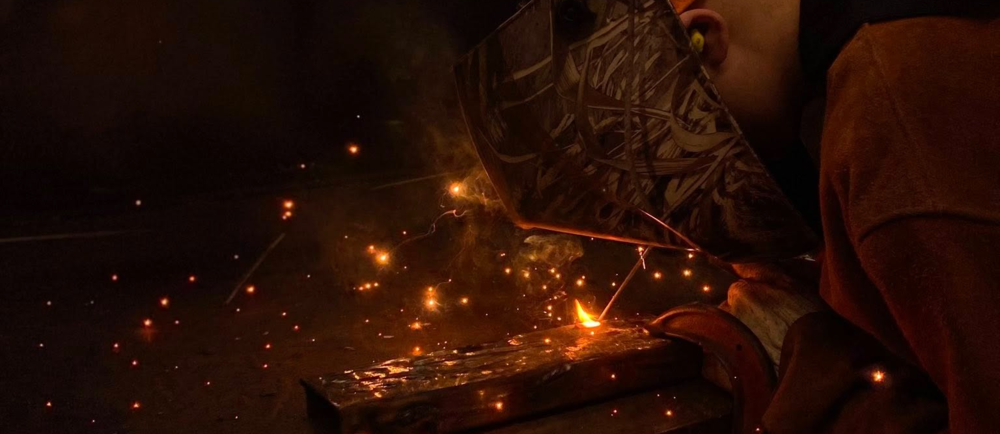By Jonathan W. Gipson
MAGAZINE SCHOOLS MEDIA RELATIONS
One of the major priorities for Magazine Schools is ensuring its high school students are prepared to be successful in whatever path they take after graduation.
For some, that means pursuing a college degree or vocational/trade certification or joining the military or workforce.
None of these paths are without their challenges and obstacles in what has become a rapidly-changing job world.
For future Magazine graduates who wish to seek a career or vocation within the scope of Career and Technical Education (CTE), their chances for success are greatly increased due in part to the opportunity to earn college or vocational school credit or trade certifications for free while still attending high school.
Over the past few years, more and more emphasis has been placed on preparing high school students for CTE careers, particularly in the state of Arkansas where CTE education programs are beginning to add preparation and skill-building for careers like information technology, health services and advanced manufacturing to name a few.
Magazine Schools has been among the leaders in this CTE movement for quite some time, and it continues to build relationships with area institutions of higher learning and vocational schools to help its students get the instruction and training needed to be successful in those post-high school career paths.
“At Magazine Schools, one of our top priorities is ensuring our high school students are fully prepared for life after graduation,” Magazine Schools Superintendent Dr. Beth Shumate said. “We’ve been proud to be among the early leaders in the Career and Technical Education (CTE) movement – an initiative that has become a major focus of both the Governor’s Office and the Arkansas Department of Education. The fact that our students can access these high-quality, career-focused courses at no cost is a tremendous advantage.”
Earlier this summer, Magazine Schools announced that it had finalized an agreement with Arkansas Tech University-Ozark Campus to offer its students the opportunity to earn credit hours and certification in the field of welding through concurrent courses on the high school campus.
“As a district, we are always seeking ways to meet the growing needs of our students, both academically and professionally,” Shumate said. “We actively pursue partnerships with institutions of higher learning to offer unique opportunities that allow students to begin laying a strong foundation for their future careers while still in high school.”
The American Welding Society predicts that by 2028 there will be a need for about 330,000 welders as older members in the profession retire and the demand for welders increases.
Entry level welders can earn between $31,000-$46,000 a year on average with the annual median salary in 2024 being $51,000, according to the ADE Division of Career and Technical Education.
Welding is the latest program added to Magazine Schools’ catalog of concurrent credit CTE programs that includes Banking and Finance, Education Pathway and Construction Tech.
WELDING
Beginning this school year, Magazine students will have the opportunity to enroll in the recently added concurrent course in the field of welding through Arkansas Tech University-Ozark Campus. The program will be taught on the Magazine High School campus by Magazine High School Vocational Agriculture Teacher Cortney Hicks..
The fall semester course will be Introduction to Thermal Cutting.
“This will entail training on the safe use of oxyacetylene welding and cutting,” said Hicks, who will begin her fifth year at Magazine.
The spring semester course will be Introduction to Arc Welding.
“This course will cover welding basics, safety, electrode selection, welding bead practices and welding on structures,” Hicks said.
Students who successfully complete both courses will earn eight college credit hours.
“The goal of this course will be to equip students with the hands-on skills needed to pass a D.1.1 AWS Welding Certification Test,” Hicks said.
“If students successfully display the skills needed to pass, they will be taken to test for the AWS Certification. This will be beneficial for students looking to work in the welding industry and give them valuable experience.”
BANKING
Magazine students will continue to have the opportunity to earn college credit in the field of banking and finance through Arkansas Tech University-Ozark Campus.
Magazine High School Business Teacher Brad Smith, who has extensive professional experience in the field of banking and finance, will begin his third year teaching the Principles of Banking/Branch Operations course.
“This class is for students interested in banking and finance,” said Smith, who will begin his fourth year at Magazine. “It's structured to teach students how to become a bank teller, but I know personally there's more to banking and finance than that, so students will also learn about credit and personal finance among other things.”
Upon successful completion of the course, students will earn six college credit hours for the year.
EDUCATION
For Magazine students interested in pursuing a career in education, they will again have the opportunity to earn college credit in the field of education through Arkansas Tech University in Russellville.
The program, which is taught by Magazine High School Media Specialist and Education Pathway Teacher Cheryl Davis, consists of three courses – Introduction to Education, Education Technology and Child Growth and Development.
“Each class lasts a year long in high school,” said Davis, who is beginning her 32nd year teaching at Magazine and her third year teaching the concurrent courses.
Upon successful completion of each course, students will earn three college credit hours per course.
CONSTRUCTION TECH
For Magazine students interested in pursuing a career in construction, they will again have multiple opportunities to earn college credit in the field of construction through Arkansas Tech University-Ozark Campus.
Magazine Construction Tech Teacher Jayson McGaugh teaches four concurrent college credit courses: Residential Construction I, Construction II-Carpentry, MEP I and Introduction to Construction.

